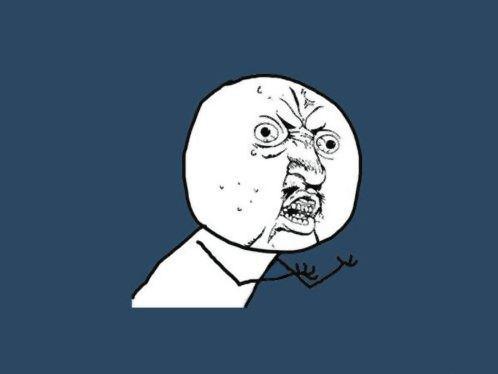Alternatively, in the languages I speak:
Welche Sprachen sprechen Sie? (Deutsch/German)
¿Qué idiomas habla usted? (Español/Spanish)
Quelle langue parlez-vous? (Français/French)
EDIT: These sentences are now up to date.
Removed by mod
English, Swedish, and Finnish.
Was Sprachen Sie spricht? (Deutsch/German)
I’m not a native speaker, but I’m pretty sure it’s
Welche Sprachen sprechen Sie?
assuming you want to be formal, which feels a little weird to me in the context of an internet forum.
Edit: but to answer your question: fluent English, mehr als ein Bißchen Deutsch, y un poquito Español.
I would like to know how a native german speaker would say it. But I would say like you
Well, if I were to post it to a community on e.g. feddit.org, I would write it as:
Welche Fremdsprachen sprecht ihr so?
“Fremdsprachen” just means “foreign languages”, since I know that responding folks speak German.
Then “sprecht ihr” rather than “sprechen Sie”, because addressing a group of people with direct pronoun is unusual in German.
As someone else already said, using “Sie” is also far too formal for this context. People refer to each other as “Du” on most of the internet.
But “Welche Sprachen sprichst Du?” still gives me vibes of a marketing firm hoping to drive engagement by referring to people directly.And then the “so”, I have no idea what that is linguistically, but it basically makes the question more casual. It invites for people to tell a story or to have a chat.
Thanks for the detailed answer. Interestingly it is pretty similar to the idiomatic way to say it in French. Except for the “so”
“So” is indeed one of those small things that’s just colloquial to casual conversation in in Germany. To me personally it signals that you weren’t as exact with your question so you’re leaving it kinda open ended to some degree. But when it comes to Grammar no clue what this is.
It feels a bit similar to “do you speak any other languages or ~” because this leaves it less as a direct question and more as an open ended conversation, suggesting you just wanna know more and you’re not very particular in your question and in what you expect as an answer.
It is indeed normal to use ‘du’ pretty much everywhere on the internet. Even in French i never see ‘vous’ (which to me feels more common than Sie in German usually).
Sehr gut, danke! Muy bien!
ein Bißchen Deutsch
BTW, this should be written as:
ein bisschen Deutsch
We switched from ß to ss in all words with a preceding short vowel in 1996: https://de.wikipedia.org/wiki/Reform_der_deutschen_Rechtschreibung_von_1996
So, it’s “Fuß” and “Maß”, because those are pronounced with a long vowel, but then “Fass” and “muss” and “Biss”, because those are pronounced with a short vowel.And in this case, “bisschen” is spelled with a small “b” for reasons that I’m not entirely sure are logical. 😅
It would be spelled with a capital letter, if “Bisschen” was a unit of measurement here (i.e. a small bite), like a “Liter” is.
But because it was used so much and without really referring to a specific measurement, it eventually began being spelled lowercase, similar to “wenig” or “etwas” (“ein wenig Deutsch”, “etwas Deutsch”). Apparently, this kind of word is called an “Indefinitpronomen”.https://de.wiktionary.org/wiki/bisschen
vs.
https://de.wiktionary.org/wiki/Bisschen (much rarer)Thanks! It’s surprisingly difficult to get Germans to correct me on things. Most of them are just happy that I can speak it at all, so they tell me not to worry about the little stuff. 😂
Native English speaker. I learned some French in school and enough Japanese to get through a judo match. I struggle to retain other languages. Everywhere I go everyone speaks English and it’s hard to justify learning a new one even everyone in a 1000 mile radius speaks English.
Best to worst:
- English (Native)
- Spanish (Moderate)
- Japanese (Too low, needs severe work.)
Samples from the four I know:
My name is Leni.
Nimi mi li Leni.
Hake anni Leni.
– -.-- / -. .- – . / … … / .-… . -. … .-.-.-
Samples from ones I know selectively:
O Leni to’u i’oa.
Ko Leni toku ingoa.
Meu nome é Leni.
Je m’appelle Léni.
Was Sprachen Sie spricht?Welche Sprachen sprechen Sie? (Deutsch/German)/\ that’s the more formal way of addressing either a single person or multiple (yeah, this formal pronoun is a bit weird and can be read multiple ways). If you wanna address a group of people more informally: “Welche Sprachen sprecht ihr?”.
Native German, fluent English, full working proficiency in Norwegian, (understand Swedish and Danish as a direct consequence), somewhat proficient in Dutch and French, and my Chinese is enough to get by. Couldn’t hold a longer conversation though.
How did you learn so many languages?
I move around a lot and always pick up the local language.
Oh I forgot to mention Luxembourgish as well, used to be pretty fluent, but didn’t have much of a chance to practice in the last 15 years or so.
Greek, English, and I understand a bit of French, since my husband is French. I lived for 9 months in Germany too, and I could understand a bit of that too, but that was 30 years ago and I’ve forgotten most of it.
Truth is, I don’t really like verbal communication, in any language. I have trouble finding words (including my native one), it’s as if my brain is not optimized for language. It gets worse when I’m sick (I have multiple autoimmune issues), it’s as if language becomes a barrier. My husband becomes aggravated when I can’t find the right words to communicate. I wish we had telepathy, communicating with feelings.
I’m able to speak German (native speaker) and English (fluent).
Also, as a German speaker, I’d like to correct the question in the post:
Formal would be “Welche Sprachen sprechen Sie?”.
More fitting for a casual environment (such as Lemmy) would be “Welche Sprachen sprecht Ihr?” though :)
This is, because in German there are formal and informal ways of addressing people, both with their distinctive pronouns. Usually, when talking to people you don’t know personally, you’ll address them formally and then, when offered to, switch to the informal style once you know them. Online or among the younger generation it is much more common to just use the informal case though.
Welche Sprachen sprecht ihr?
Would be correct. The capital “Ihr” is used when addressing nobility.
Cantonese (廣東話/粵語) is what I speak, Traditional Chinese (繁體中文) is what I write.
唔好彩嘅係,Google 仲未支援粵語翻譯,你可以試下用其他翻譯器,DDG 嗰個好似 OK
(Translation: Unfortunately, Google still doesn’t support Cantonese translation. You can try other translators. The DDG one seems ok.)
Other than that, I also speak Mandarin (普通話/國語), which is the other spoken Chinese.
Englisch and jeeburriche
Polish
English
Learning German and Spanish
* Welche Sprache sprechen Sie?
Vee feel shpra her shprist doo, doo arsh lock
*Du… Benutzen wir Sie hier wirklich?
Dutch, English, French and German.
With a sliver of Latin from school, so I do understand morsels of Italian and Spanish
Is dutch your first language? How hard was it to learn german?
Yes Dutch is my first language. German can be strange to learn, much of the vocabulary is similar, but sometimes strangely divergent. The grammar is more straightforward, and more rigid, but can be hard to learn. Gender of the words is just gambling as I’ll never learn that by heart.
I much prefer french, tbh it feels more natural to me, maybe just because it’s a bit more distant, linguistically. Therefore it feels like it runs on different hardware, mentally.










